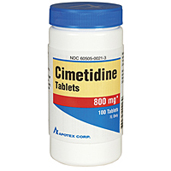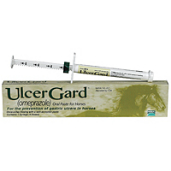Both cats and dogs can develop gastroduodenal ulcers, or ulcers in the stomach or beginning of the small intestine. The condition is considerably more common in dogs, though. The ulcers form as the affected area's mucosal lining breaks down and becomes increasingly irritated by naturally occurring hydrochloric acid and pepsin. Gastrointestinal ulcers can become serious and require prompt veterinary attention.
Gastrointestinal Ulcer Causes
Numerous underlying causes lead to gastroduodenal ulcers in cats and dogs. Accidental poisoning and therapy with a non-steroidal anti-inflammatory drug (NSAID) are two of the most common causes. Corticosteroid use and adverse drug reactions can lead to ulcers, too. Production of excessive amounts of stomach acid, a gastrointestinal obstruction or parasites, severe physical trauma, overexertion, certain infectious diseases, and kidney or liver dysfunction are other typical causes. A water mold infection called pythiosis is also known to trigger gastrointestinal ulceration, as is infection with helicobacter bacteria.

Gastrointestinal Ulcer Signs and Symptoms
Pets with a gastroduodenal ulcer may exhibit no symptoms, at least for a while. Abdominal discomfort or pain and bloody vomiting are often seen, and bloody stool with a black or tarry appearance is common. A cat or dog with a gastrointestinal ulcer is likely to experience a decreased appetite and weight loss. Weakness, anemia, and an accelerated heart rate are other symptoms. These symptoms may indicate any number of serious health concerns and require an immediate veterinary appointment.
"Gastrointestinal ulcers can become serious and require prompt veterinary attention."
Gastrointestinal Ulcer Diagnosis
Your veterinarian will use a detailed history and a physical examination of your pet to begin the diagnostic process. A variety of tests will likely be performed to rule out other possible causes of symptoms, to confirm ulceration, and to check for associated complications. Expect your pet to have blood work, urinalysis, a fecal examination, and internal imaging with X-rays or ultrasounds.
Treating Gastrointestinal Ulcers in Pets

The appropriate course of treatment for a gastroduodenal ulcer depends in part upon the underlying cause. This must first be addressed before the ulceration can be repaired. Obstructions may require surgical removal and potentially offensive drug therapies must be changed, for example. Causal parasitic, bacterial, viral, or fungal infections are treated with medication. Medications like Sucralfate can help repair minor damage and even prevent gastrointestinal ulcers in susceptible cats and dogs. Other medications like omeprazole are used to protect against ulcers in horses.
A perforated ulcer or one that is associated with a tumor requires surgical intervention. Your veterinary surgeon provides detailed aftercare instructions, which typically include limiting your pet's movements, close monitoring, a low-fat diet, and several follow-up veterinary examinations.
Sources
http://www.petmd.com/dog/conditions/digestive/c_dg_gastroduodenal_ulcer_disease#.T8pdh1KWizI
http://www.petmd.com/cat/conditions/digestive/c_ct_gastroduodenal_ulcer_disease#.T8pvjVKWizK
http://www.merckvetmanual.com/mvm/index.jsp?cfile=htm/bc/23309.htm
The above is provided for information purposes only and should not be used for the diagnosis or treatment of any condition.
This information does not cover all possible variables, conditions, reactions, or risks relating to any topic, medication, or product and should not
be considered complete. Certain products or medications may have risks and you should always consult your local veterinarian concerning the treatment of
your pet. Any trademarks are the property of their respective owners.